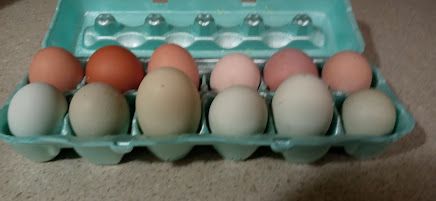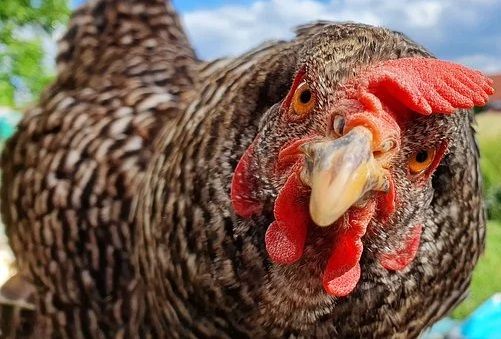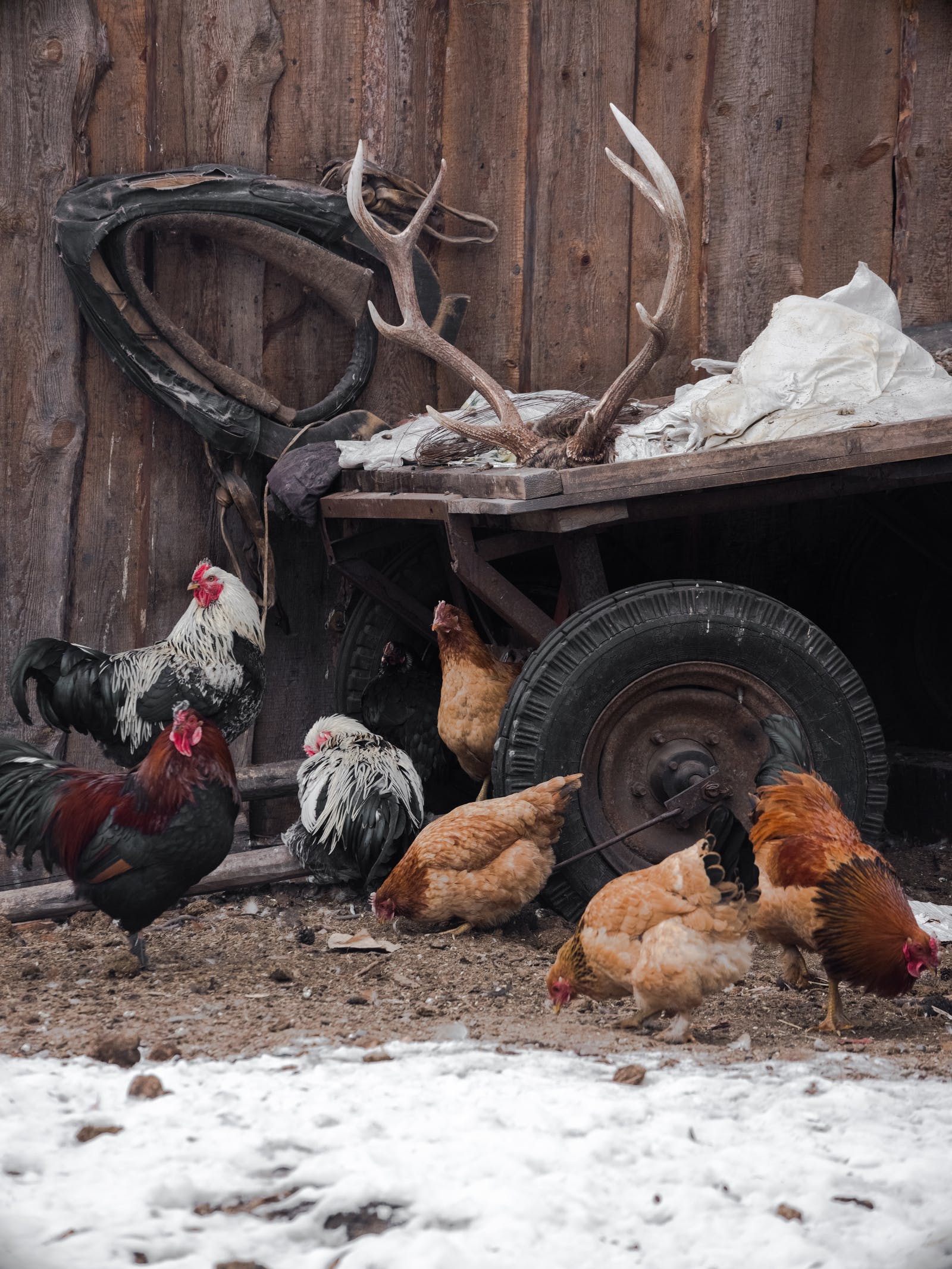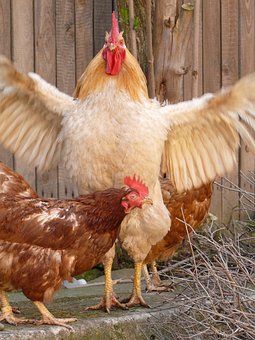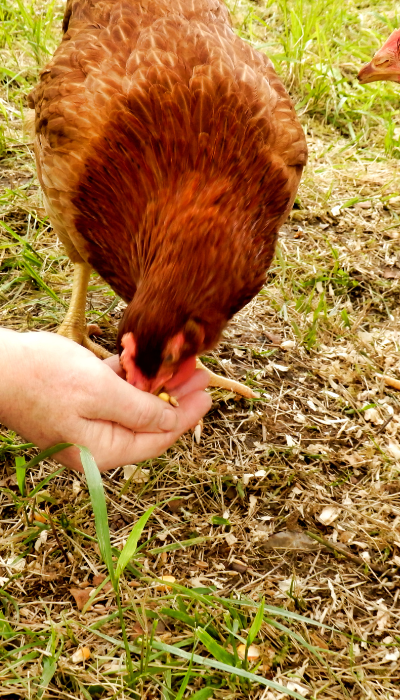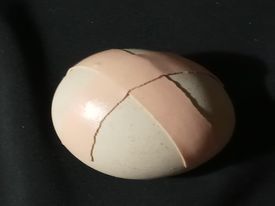Have you noticed that your chickens have laid fewer eggs lately? Understanding just that fact is half the battle. It is always good to know every day how many eggs your hens are laying each day, this way you will recognize it much faster if something is off or completely wrong.
May I suggest keeping a journal, it is so much fun reading about all the little happenings throughout the year and you are leaving a legacy behind for your grandchildren or you could publish a book later?
But, don't fret yet, there are several reasons why a hen stopped laying eggs for a while or even permanently. Some reasons can be fixed while others take a bit of doing. Lets have a look at these reasons.
A little bit about chickens and eggs: A chicken, on average has 500-600 eggs total in her lifetime, which could be 5-10 years depending on breed and the keeper. Love is one of the most important things to keep a chicken alive longer. Because if you give it love it wants to live and do well for you, when you love you will provide the best care for your hen and give them all the benefits they deserve and need, and this is very important:
Either you feed them straight layer feed with oyster shell sand separately - a very balanced feed or only vitamins, mixed feed, scratch, meat crumbles, black oil sunflower seeds, fresh water, oregano oil, veggies, fruits, black strap molasses, ACV, protection from weather climate and predators. Pumkin is a great de-wormer.
And NEVER feed them oats, rolled or otherwise, it kills their intestines and could after a while even kill them.
So if your chicken has only 500-600 eggs in her, if a Leghorn, which could lay 330 eggs in a single year, that means she only lays for less than one more year, which means you need replacements after the first year, because you should only hatch chicks in spring for the perfect environment and it takes at least 20 weeks on average to have your first egg depending on the breed. Which means it will be ready to lay in the autumn where the days get shorter and the egg production slows down naturally. So keep all that in mind when picking out the perfect breed for your flock.
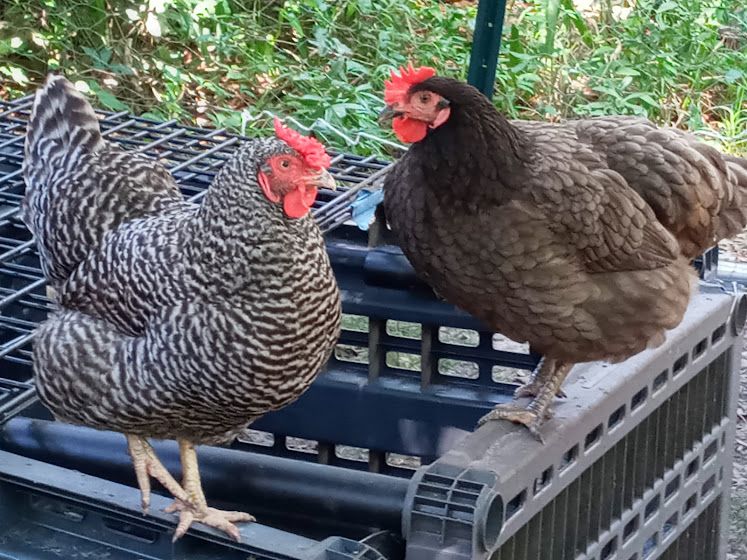
Especially in the winter time when the long days start slowly to shorten and the daylight keeps getting lesser and lesser each day is when the hens begin to slow down for the season with laying their precious eggs. The main reason is that the hens need at least 12-16 hours of daylight to properly develop an egg and then lay it.
There are actually chicken breeds who continuously lay eggs throughout the winter, however, most slow down or stop completely. If you have an egg selling business and relay on your egg layers you need to install strong lights in your coop for your hens to continue laying their eggs. You can actually purchase a light with a timer or a sensor so when it gets darker the light will turn on automatically.
That is actually how the gigantic chicken farms do it and that is why they die sooner for being overworked and under-cared for. The poor creatures. In our place we do not add lights, the hens will still lay some eggs which are enough for us and the family. Their body needs rest just as we do, it seems in the winter everything is slowing down in our bodies anyway so it is easily understandable what is going on with our dear hens don't you think?
Also, the cold temperatures could cause the lack of egg production, so in the icy days of winter try to keep the coop and water warm to keep the hens laying.
SUMMARY: Don't worry in the winter, totally normal!

Hens are known to need a specific diet to lay eggs, they need calcium for their egg shells to make them nice and strong and protein to develop the egg whites and grow the yolk, which has started growth long before the day of laying. If you ever saw a butchered hen, you will see many egg yolks of all sizes in different developmental stages.
So if you have fed them a layer feed and perhaps mixed some meat feed, which has lots of protein that is very rich and makes them grow nice and strong, that is the reason you feed that to the Turkeys right before Thanksgiving extra portions! But if you changed that in any way shape or form you might find out they lay fewer eggs, the eggs need that protein to develop properly. However, not too much protein either or it can cause issues as well. Balance is the key.
So feeding them a steady diet is key to good layers. I always feed our flock for treats like carrots, cucumbers, and other fruit left overs etc. They love hotdogs the most, they won't touch their regular feed if I come with my container full of those Not one flat piece of treats will be missed that's how crazy they are about it.
So when it comes to the calcium make sure you use all the egg shells you have, bake them if you can for 30 minutes and put them in a blender and mix it in with their regular feed this will provide ample nutrition and safes you a lot of money not having to buy these oyster shells.
I tried to feed my girls pellets but they won't have it, they are used to the other stuff, much smaller and easier to swallow I guess or since it is pressed they might get too thirsty after eating their meal? So provide them with supplements and electrolytes in the water, or at least some drops of Apple Cider Vinnegar every so often. Most important is probiotics great for the gut and dewormer.
SUMMARY: A balanced diet, calcium, daily fresh water, vitamins, electrolytes and protein (not more than 20% per day)
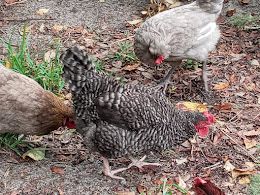
Here in Florida that is definitely a very strong reason why hens lay less eggs in the summer heat beginning at 90 degrees. There body is totally stressed out from the heat that their laying process can come to an erupt hold. The heavier chicken breeds such as the Wyandottes and Jersey Giants are in particular danger of overheating and can even cause death.
So it is of utmost importance to have fresh cool water in the shade for your flock or they could stop laying eggs or even die. So please take the water situation and the heat very seriously and add electrolytes and vitamins to the water.
If you can afford it I would even go as far as to place a window air-conditioner in your coop to ensure the hens safety and that the egg production is not put on standby.
SUMMARY: Keep your flock cool, provide shade, cool water (not necessarily ice cubes because that could cause spasms) fan or air-condition your coop.
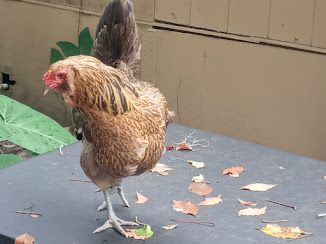
Chickens are a creature of habits. They love to be fed at a certain time and start making all kinds of noise when late to make sure Mom hears them and comes with the treats. The same way with anything new, they know it immediately, you can move a pot or a nest in a different way and they will be all over it to see what the heck is going on?
So if you bring a new hen into the flock, oh boy, you just opened a can of worms sort to speak. They will all go haywire for sure. There has to be a new pecking order established, feeding and watering will be different because of the newcomer and now Mom will be spending more time with the new hen on the block and the other ones will take notice and be feeling rather jealous for a while, could be days or a couple of weeks.
After all has calmed down and the new additions have been pecked into order and certain new normalness has been established all will be fine again and the hens should be laying again real soon.
SUMMARY: No worries, all is well, just treat the new hen as the others.
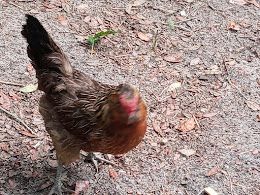
Molting is a totally normal reason for stopping to lay eggs every year, usually, during the period when the days seem to get shorter and last typically between 8-16 weeks. Nothing to fret over it is completely normal so don't freak out.
Just keep in mind that she still needs the same good nutrition only now it is to regrow her feathers and not for her eggs. Once that is completed the feathers are nice and pretty again she will continue laying her eggs as she always was before.
The hen may stop laying a couple of weeks before you even notice any of her molting signs, so keep that in mind and don't fear the worst. Stay positive and channel that to her. Tell her how beautiful she is even if she looks uglier than ever during that period. Animals, plants, even rice in water can feel the love or the indifference of a human being taking care of them or the lack thereof.
So be mindful when you approach your chickens during that time. They feel your energy and disapproval if they look ugly and don't produce eggs, what good are they you might think, so forget about those negative feelings and turn them into positive ones by telling them that they are special and soon be better than ever.
SUMMARY: Provide moral support, keep nutrition high, water well.
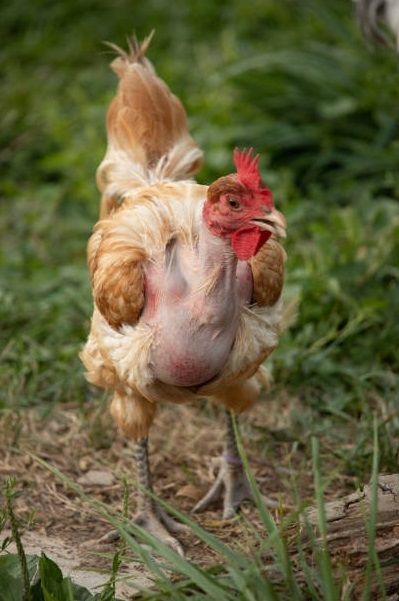
Many have charts where they show oh in year 10 the chicken will only lay 40 eggs, humbug! As explained at the beginning, a chicken has only 500-600 eggs in her ovaries, to be exact egg yolks, and they develop all the time so if you open a hen in her prime you will see all kinds of egg yolks of different developmental stages.
So, if a chicken lays 300 eggs the first year it can only lay another years worth of eggs, which brings it to a total of two years of eggs. So what is your plan now?
Will you sell the chicken for meat?
Are you going to eat it yourself?
Shall she continue to be a family pet?
Do you have plans for replacements?
It is good to ask yourself all these questions before you start an egg business so many issues could fall upon it.
Keep up their immune system to prevent decay.
So the average chicken does not lay 330 eggs per year mostly the Leghorn and Golden Comet, it is best to say on average you will have a chicken that lays 200 eggs per year right? So you will most likely have a laying hen for 3 years which could live with the proper care up to 10 years, which is rare. Average 5-8.
SUMMARY: Have a plan what to do with the hen that stopped laying! And how to replace it, hatching chicks or purchasing different breeds?
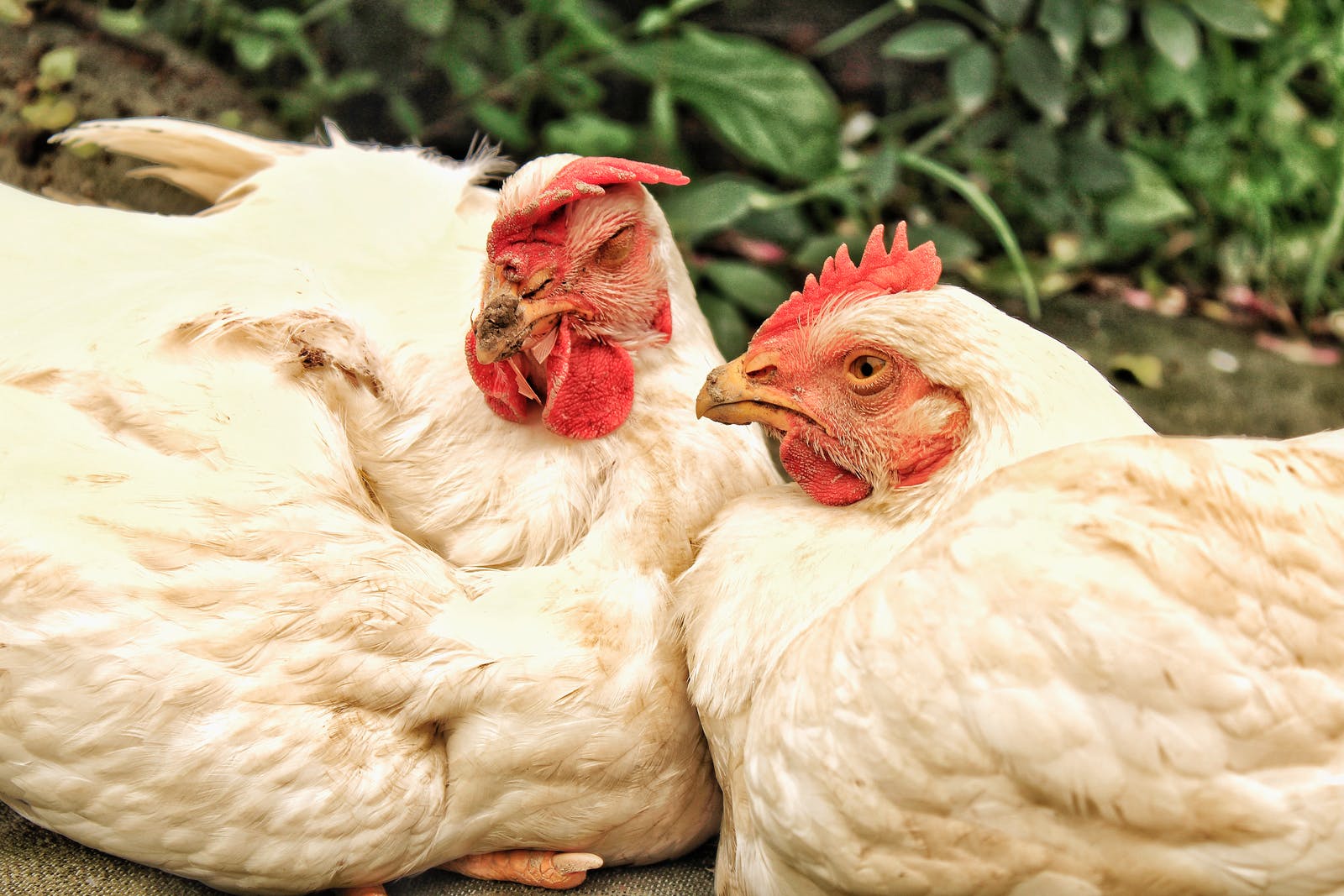
There is a fantastic article about the subject of egg drop syndrome on Wikipedia
There are some common illnesses in laying hens as mentioned the egg drop syndrome, Rickets, caged layer fatigue, Fatty Liver Syndrome and egg peritonitis, plus several Avian viruses as well.
Also, mites, lice, ants can cause havoc on egg production, so cleanliness is extremely important!
SUMMARY: Prevention! Keep your coop clean! Use Diatomaceous Earth! Provide clean feed, fresh water with supplements, nutritious treats and love!
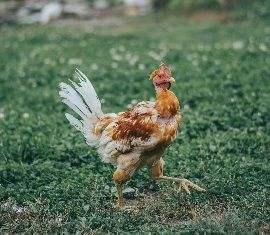
Any type of stress can cause a hen to stop laying eggs temporarily. So if you suddenly use a loud new noise such as a chainsaw to cut down some huge tree limbs, or a loud muffler of an old truck or motorcycle, or the fireworks on 4th of July, or even a neighbors' dog barking suddenly could set the hens into a stress spin that will take a while to get out off. Often cats can cause huge stress on chickens.
So simply be mindful of the stress level chickens could fall into. Sometimes to much heat could definitely be a stress factor and so could be not being fed on time or at all, or you forgot to close the coop door at night could set them up for stress and you could expect a few less eggs for a couple of days.
In some severe stress situations chickens could actually die. So try to avoid too much stress if humanly possible.
SUMMARY: Keep stress at a minimum as much for the hens as for yourself, if you are not well, neither will your flock.

You might think theft? Yes, theft, there are chickens that actually eat eggs and that is terrible, it spoils the nesting material, attracts flies and ants and teaches others to do the same. So you must install a camera to find the perpetrator that eats the eggs and after you figured out who it is you MUST deal with her, eat her, sell her, or rehome her for free - but that wouldn't be a nice thing to do to your friends would it? But one thing is crystal clear you must get rid of her or you will have a disaster on your hands.
But, besides your own chickens, there are multiple culprits thieves out there, the list is quite long.
Opossum - Rats - Snakes - Squirrels - Fox - Raccoons - Crows - Blue Jays - Coyotes - Skunks to name a few.
And, not only do these predators eat your chickens' eggs or your precious eggs they also kill, eat and steal your chicks and chickens.
Plus there is the occasional neighbor that might take a few, but that is rarer than the above reasons. Or the neighbor gives you a sab story and begs you for eggs and you hand them over to them only to see them the next time in the grocery store at the cashiers line buying tons cat food for the felines that steal and kill your chicks and chickens. So know your neighbors!
SUMMARY: Install camera! Make your coop predator safe!


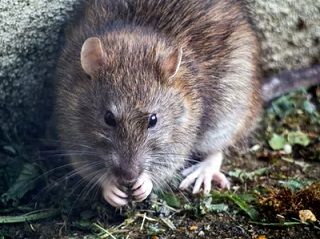

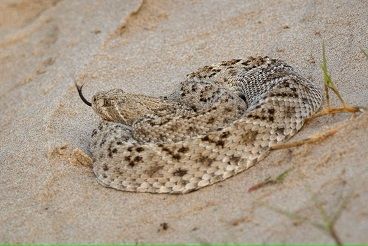

As above mentioned with the stress level, fear is even worse than just noise stress. Fear is a natural instinct to chickens, especially, the Polish breed because they have trouble seeing in the first place due to their beautiful but vision impairing crest on their head.
Once the flock has seen a devastating predator attack when chickens were attacked, stolen, or even killed and the bloody reminder with feathers and feet attached remains are visible to them, it is a bloody shock to you and to the poor little creatures. You know yourself how hard it is to overcome a shock like that so just think how afraid the other chicken witnesses might feel? Exactly.
So it is understandable that something in their hormone levels will be off and it will take some time to recuperate wouldn't you agree? So be kind to them and above all predator proof your coop, your run, and your whole property is a must.
If you cannot afford to protect your flock financially or mentally or physically, you might want to consider given your flock to someone that can, it is truly that important. You can keep one as a pet in a large cage on your porch and be just as happy and get free eggs from the friend you handed your other chickens to.
The predator list is even larger when it comes to killing and eating your chickens:
Opossum - Rats - Snakes - Squirrels - Fox - Raccoons - Crows - Blue Jays - Coyotes - Skunks - Hawk - Vultures (two Vultures are sitting on the branch in the dessert they haven't eaten for days, one says to the other - I'm gonna get me something)
SUMMARY: Trim Polish Chickens' Crests around the eyes; Predator proof you whole property! You can buy fox urine powder to keep the smaller predators away, and some sounds humans can't make out but that are unbearable to some predators, perhaps some netting where there are holes in the tree canopy?






As mentioned above, some breeds simply lay fewer eggs than others. The Leghorn lays an average of 330 eggs per year (the record was 371 eggs in one year), others lay only 140 per year, so you see Leggy laying an egg every single day, you feel like what is wrong with the others? Well the reason is simply the breed in many instances.
So if you don't know what breed some of your chickens are, you might need to find out for sure take the ones you need to learn more about to the next poultry swap and display them and ask the others if they might know what breed they are.
Some could be a barn mix than it is harder to know and you can only imagine the right amount the hen might lay per year, because it could go after the fathers' genes or the mothers'? The egg color, weight, size or amount of eggs per year is quasi impossible to know until you count them systematically. Younger hens lay small eggs until a few months later slowly they are large eggs. I had tested that theory and collected a particular hen's eggs every day and saw first hand the increase in size, it was amazing.
Hens that lay the most eggs are: LEGHORNS, RHODE ISLAND RED, GOLDEN COMET (which are RIR white & red mix)
Hens that lay the least eggs are: AYMAN CEMANI, BANTAMS, GAME BIRDS, SILKIES
SUMMARY: Decide which breed before starting a flock! Can you afford it physically (lots of poop to clean), mentally (dead chicks at times), financially (eggs cost a ton of $)
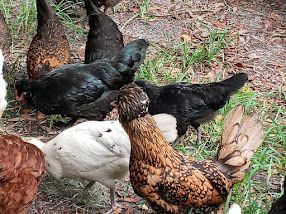
When a hen is what is called "broody" meaning she is ready to sit on some eggs and hatch them.
However, there is a lot more to it. A broody hen, usually, in the spring, will get into a funny mood and start acting kind of strange, you will see her sitting in her nest much longer than usually, and one day she won't get up at all. Every time you stop by to check on things or treat your flock or clean the coop here sits Frizzy, the black Frizzle. I will use her as an example, because she seems to wear many hats.
So, Frizzle will allow other chickens to lay their eggs in her nest so she will get more eggs quicker, but it doesn't really matter if she has zero eggs or 32 eggs, any number in between is normal for a hen to go broody when she will stop laying eggs herself. The first couple of days she might still lay an egg or two depending on the breed, but shortly thereafter, she will be in the broody trance and not lay at all.
I had another broody chicken a Brahma, her name was Sunny, she was such a good mom, we put duck eggs under her and it takes 28 days for ducks rather than 21 for chickens, so she sat on the duck eggs longer in order to hatch them. So they have a feeling which eggs will do and which they will kick to the curb. Although, some broody chickens could lay on an empty nest for 21 days without ever having the feeling of success. Whilst others could sit on 32 and they squish some of the eggs, which will spoil some of the others, and some will hatch sooner than other eggs because they were laid at different days.
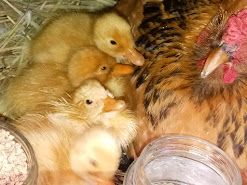
There are so many differences in broodiness that I am sure many of you will have different experiences all the time. Frizzi is a terrible mom, she has accidently, we assume, killed several chicks already, and this year on her third broody hatch she abandoned her nest to go the next one that had a bunch of eggs in it.
So when I came to the coop to check the eggs in the first nest were getting cold to the touch and I took them and put them in the incubator and most survived miraculously and hatched happy and healthy, the first hatchling (her whole batch hatched on different days, it was not easy to determine when to take them out and put them in my second incubator for the 3 day end lock down period) a beautiful beige, my favorite color, chick I took back to her in the brooder container, since she actually had changed her nest back to the first nest so the second nest full of beginner embryos eggs was left to their own accord.
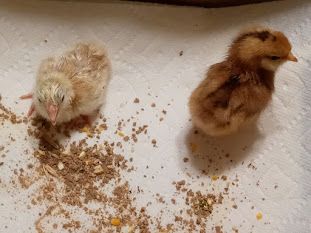
So I had to take those eggs and add them to the other eggs in the "oven" incubator. So now I had so many different stages of eggs that I lost total control, but I try to keep cool and candle them at times to see the stages, you can see when the air bubble is shaping diagonal and the chick is twirping and moving around you know its time to move them to the second incubator and repeat the process.
As I said, Frizzi now in the brooder tub in my office to keep a better eye on her had only one chick that she actually hatched, because I saw the crack on an egg in the incubator and quickly put it under Frizzy amongst of some remaining eggs under her. So at least she experienced again the hatching of her own eggs (although it wasn't hers).
Now the beige egg I took from the incubator and put it to her, like the last time Frizzi was broody she accepted new hatchlings I put under her, but this time she literally tried to kill it. I mean Frizzi was brutal, I had to safe it and take it away from her. Ok she is black so a beige one? But the last batch she had white ones I put under her belly and she had no problem whatsoever. So it goes to show you never know, you can't count on something when it comes to chickens. They are moodier than a woman on full moon with her period.
So after a good week I let them go outside and after another four days feeding both mom and baby, the little one was gone.
On another occasion, I had a barn mix, her name is Buffy, and she had three babies and the next day one was dead, one was alive, and one was missing, suddenly, I hear this chick screaming outside, and sure enough it was her one day old chick, now I didn't know if she kicked it out of the nest (table height) or if it escaped, but either way, she was not a good mom, and I took her remaining eggs and hatched them myself.
Then Buffy went to another nest on the other side of the coop and started to brood over there, but I put a quick end to it and just took her out of the nest and onto the ground gently and repeated the same a couple of times and she stopped being broody altogether. I do not need broody hens that are bad moms, than I might as well hatch them myself, a lot less trouble than going through that turmoil every time wouldn't you say?
Anyway, long story short, a hen can go broody for up to 7 weeks, which is extremely unhealthy, some can die, some stay sickly, so I feed mine in her nest and remove the poop. Frizzy even pulled out her own belly feathers to give the chicks a more pleasant feeling the second time she was broody, but not the last time. So go figure.
SUMMARY: If you don't want chicks, get rid of rooster, if you do, watch your brooders closely.
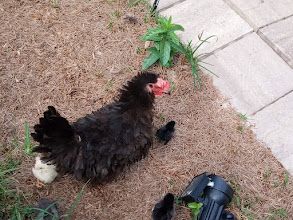
Thank you so very much for reading our information on the reasons why your hens could have stopped laying eggs.
We hope you will join us for all your other chicken needs in the future and we appreciate your support for our mission.
Looking forward seeing you again real soon.
Have a hilariously, adventurous, happy chicken pet day.
Your friend,
Liane
